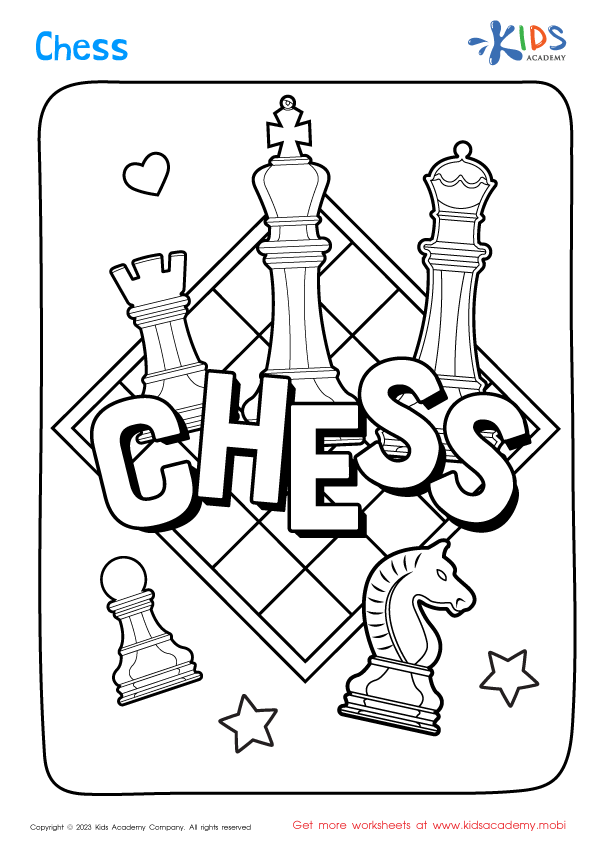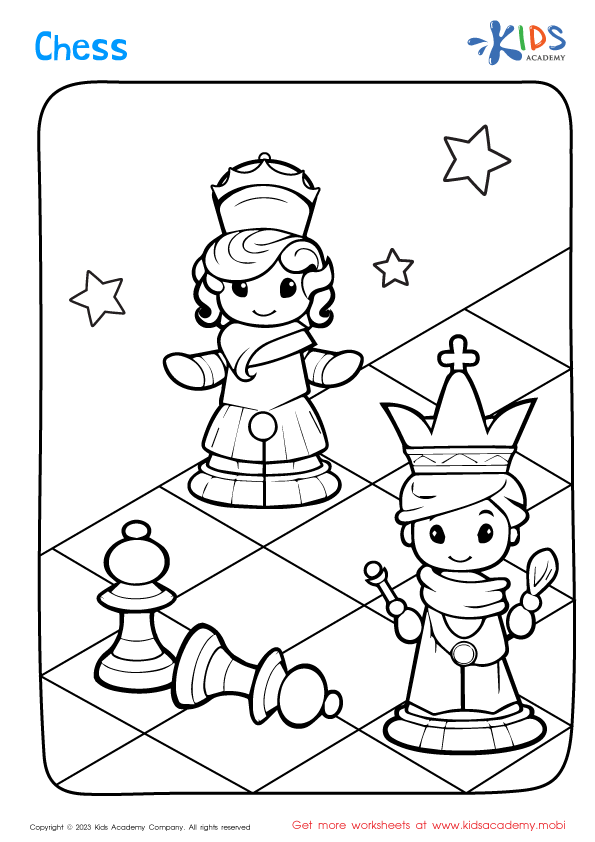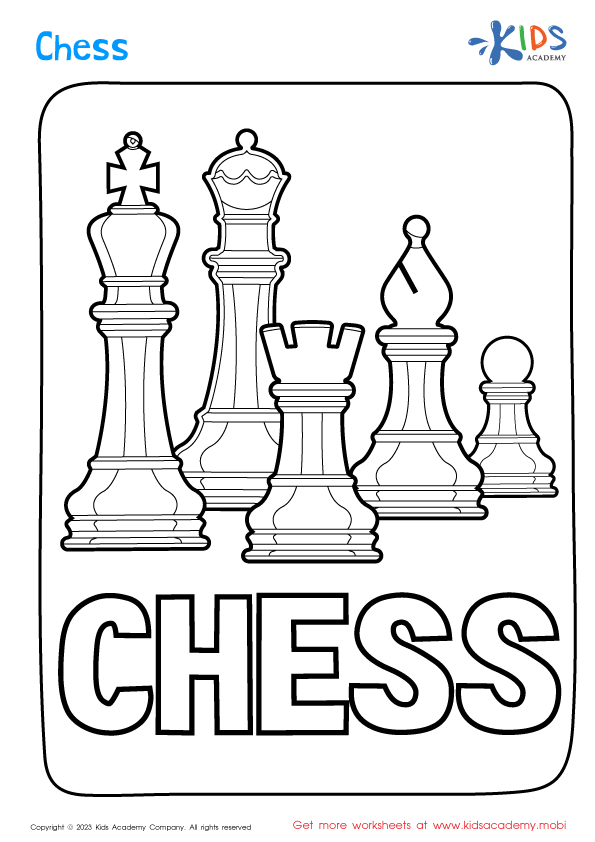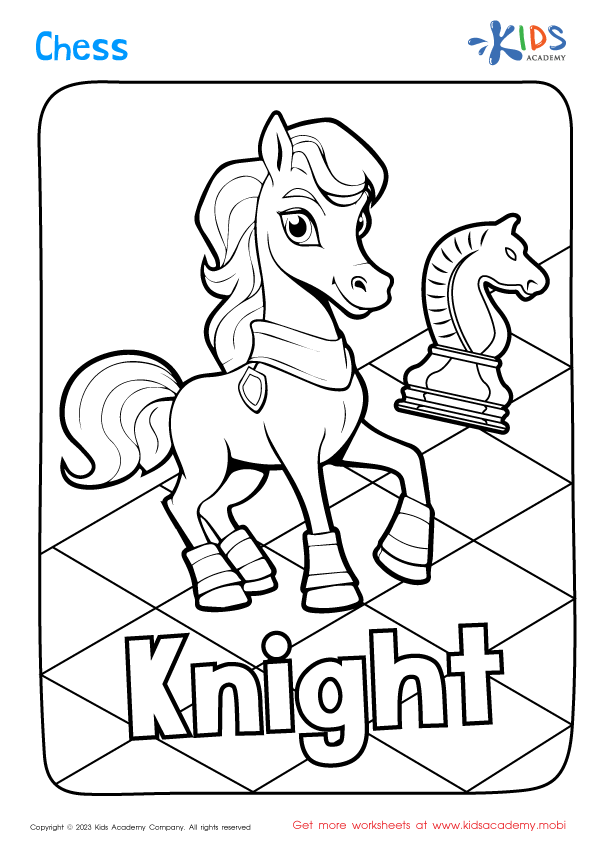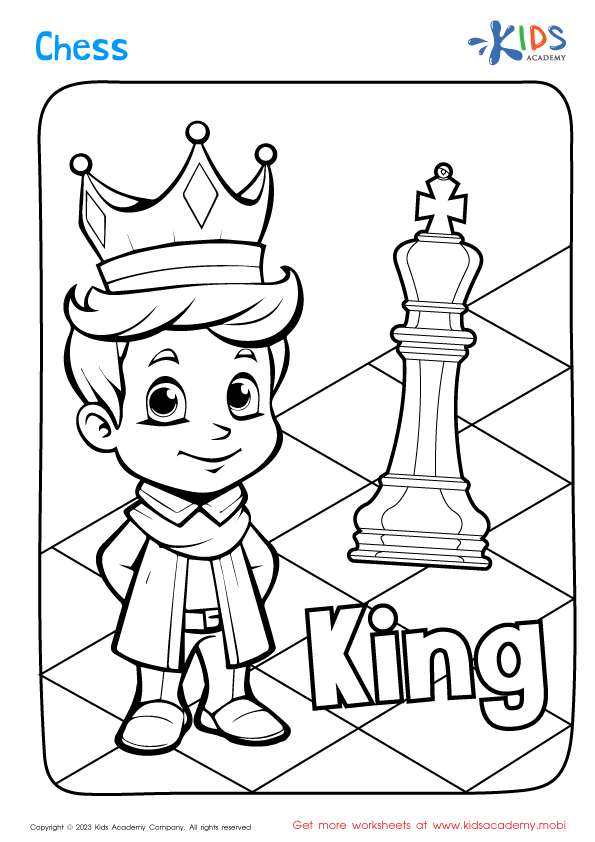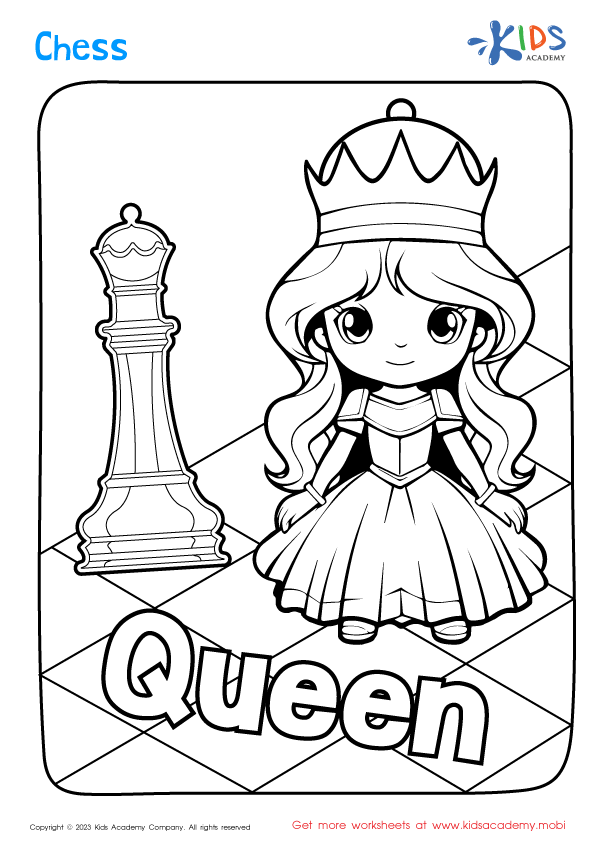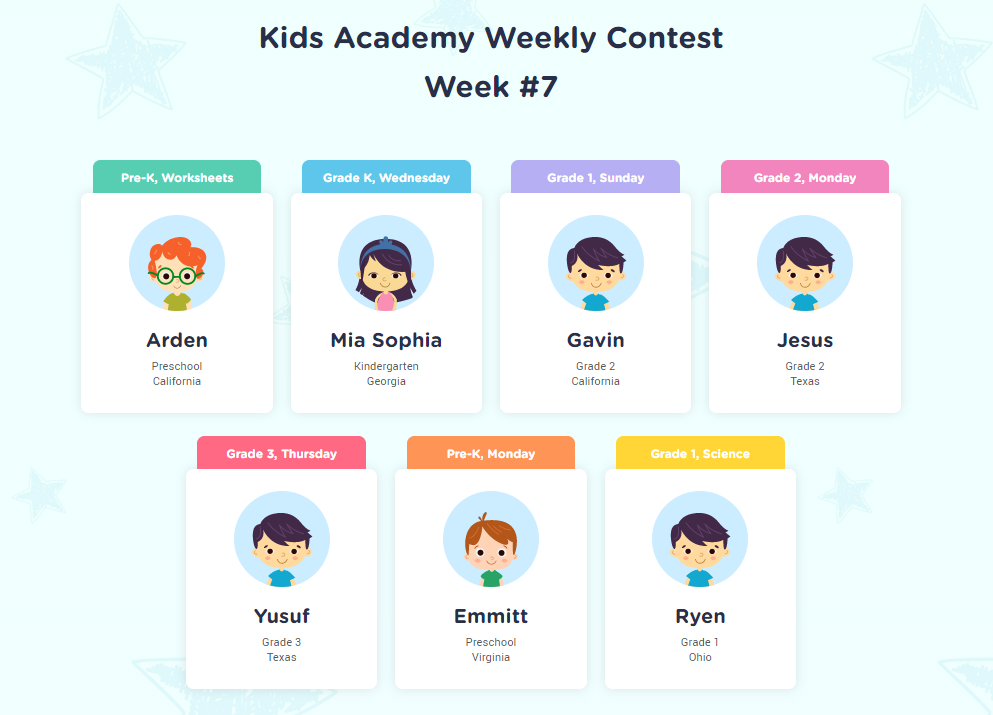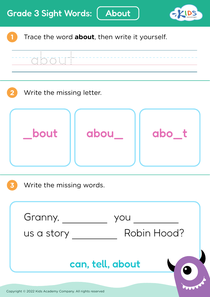International Chess Day worksheets activities for Grade 3
6 filtered results
-
From - To
International Chess Day worksheets activities for Grade 3 represent a distinctive and engaging educational experience, perfectly timed on July 20th to celebrate the game's rich history and its influence on cultures worldwide. At this developmental stage, children are not only expanding their academic skills but also their cognitive and social abilities. Incorporating International Chess Day worksheets into the Grade 3 curriculum offers a multifaceted educational opportunity that extends beyond the basic understanding of a globally cherished game.
Firstly, these worksheets serve as an excellent introduction to the game of chess, emphasizing the rules, strategies, and critical thinking required. Through fun and interactive activities, students are encouraged to learn the roles of different pieces, the significance of strategic planning, and the importance of decision-making. Such skills are vital, both on the chessboard and in real-life situations, enhancing problem-solving abilities and fostering a growth mindset among young learners.
Additionally, these activities promote cultural awareness and appreciation. International Chess Day is not just a celebration of a game but a recognition of its role in bringing people together across diverse backgrounds. By engaging with these worksheets, students gain insights into how chess has influenced various cultures and histories, enriching their global understanding and empathy.
The social benefits of these activities cannot be overstated. Chess is fundamentally about interaction, whether between two players or among a group discussing strategies. The worksheets designed for Grade 3 students encourage teamwork, communication, and respect for others' viewpoints and strategies. They learn the values of patience, turn-taking, and sportsmanship, essential skills in both academic settings and everyday life.
Finally, the inclusion of International Chess Day worksheets activities for Grade 3 in the curriculum is a testament to the educational value of combining traditional learning with interactive and fun methodologies. It supports a holistic approach to education, where cognitive, social, and cultural developments are interwoven, preparing students not just academically but as thoughtful and proactive global citizens.

